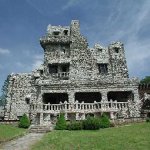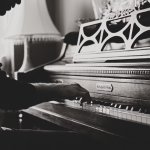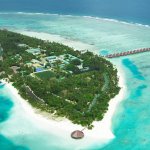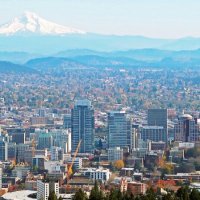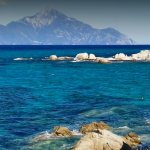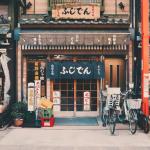High School in Switzerland
The individuality of the student and the development of a versatile personality are the main criteria on which the entire Swiss education system is built. In the land of the Alps, a child with any hobby or inclination will be able to receive a quality education, develop his or her talents and learn several languages. Swiss schools place special emphasis on extra-curricular education, offering a wide range of sports activities, art and music courses. The choice of courses and subjects offered by the state's private educational institutions is also important in an education that develops the whole personality.
The Swiss secondary education system
Secondary education in Switzerland is based on a three-stage program. The first two steps are compulsory and the third step is optional.
The compulsory education program lasts nine years. They start at the age of six and spend nine years in elementary school. The main focus of the educational program is the determination of children's competencies in various subjects, as well as the in-depth study of the national language. The mid-term curriculum for 12-15 year olds varies from school to school. Each department emphasizes its own unique set of subjects and is known for its popular language of study.
At the end of the midterm, students who are about to enter graduate schools and universities enter a final, higher level of study. Depending on the marks on their certificates, others can enter polytechnics without having to pass an entrance exam.
The educational programs in Switzerland are listed in the table below.
-
Matura - the Swiss program.
-
Abitur - a German language study program.
-
Baccalaureate - a French language program.
-
Maturita - an Italian high school.
-
American program.
Almost all private schools in Switzerland are happy to accept immigrant children. In addition, some general education institutions even prepare schoolchildren by offering paid courses for parents to work with school teachers to develop their children's conversational French and German skills. Under certain conditions, these include high school and secondary school students' grades in various subjects that can be taken to school without knowledge of the language.
Benefits of attending high school in Switzerland
-
Various programs
High schools in Switzerland offer the opportunity to study not only under the Swiss national program (which, by the way, is one of the most difficult programs), but also under many international programs: German, French, British, Italian, American, and even the International Baccalaureate, which is recognized by universities in more than 100 countries worldwide.
-
Language education
Not surprisingly, in a country where the inhabitants speak 4 different languages, high schools place special emphasis on language education. Usually, the program includes a mandatory mastery of 2 foreign languages. In addition, if the child lives at home, he or she has the opportunity to practice the language of the state where the school is located.
-
International environment
In private schools in Switzerland, about 98% of the students are foreigners. By living in a multinational environment, students acquire qualities such as tolerance, openness, sociability, kindness and respect for other cultures. In addition, being in a foreign environment is very helpful in improving language skills.
-
Great opportunities after graduation
Secondary education in Switzerland is a guarantee of admission not only to national universities, but also to many world-renowned universities. The certificates earned in Switzerland are very important abroad, and the diverse curriculum allows you to choose courses in countries where you plan to pursue higher education in the future.
-
High-quality school facilities
Swiss secondary schools, especially private boarding schools, do not spend money on technical equipment for classrooms or furniture for living rooms. Parents can be sure that their children will live in a comfortable environment and will be provided with all the equipment and facilities they need to study.
-
Climate and natural conditions
Most private schools in Switzerland are located in mountainous areas, on the banks of rivers and lakes, more like retreats. After school, children can spend a lot of time outdoors, playing active sports and hiking in the nearby Alps. Physical development in Swiss schools is given as much importance as curricular learning.
Characteristics of Swiss high school education
Swiss high school is divided into two stages.
The compulsory stage begins at the age of 11-13 and lasts until the age of 15. After this stage, students can stay in school or leave school to continue their education at a specialized educational institution and obtain a secondary vocational education certificate.
To obtain a full secondary education, another 3-4 years of study are required and a certificate is issued upon successful completion of the school. Passing this stage is mandatory for those who wish to subsequently enter university. At this stage, students usually already have an idea of where they want to study at university and focus on subjects within their specialization.
The Swiss academic year is divided into three semesters.
-
Autumn (from early September to mid-December, including a short break of 4-5 days at the end of October)
-
Spring (lasts from mid-January to mid-April, including a holiday at the end of February)
-
Summer (from the end of April to the beginning of June)
Before choosing a high school in Switzerland, you should also be aware of the diversity of types of educational institutions. First of all, in Switzerland you can study in both private and public schools. Education in public schools is open to foreigners who live in the country on a permanent basis. These are, for example, the children of ambassadors and representatives of international organizations based in Geneva. Short-term education in public schools is not possible and they usually do not offer the opportunity to live on campus.
Swiss private high schools enjoy a reputation for excellence that extends far beyond national borders. Many of them have centuries of history, but most began to emerge actively in the second half of the twentieth century. Private schools have traditionally been associated with a high level of teaching and technical equipment, comfort and safety. The vast majority of private schools are located in French-speaking and German-speaking cantons; however, the location does not predetermine the language of instruction, as the schools offer educational programs in a variety of different languages.
There are two types of private schools, depending on the type of residence.
-
Boarding schools where education and accommodation are organized in the same area
-
Day schools
When choosing the right school, it is also worth considering schools with coeducation, as well as specialized schools that are separate for boys and girls.
How to apply to a Swiss high school
In order for a Swiss school to accept a child, parents must confirm and submit documentation through standard European procedures before the start of the next academic year. For admission, the following document package is sufficient and must be translated and certified by the local authorities or the country's consulate.
-
Medical certificate ;
-
A certificate issued by the school institution.
-
Proof of the child's residence in the country.
In addition, they may require at least a basic knowledge of the language.
High school tuition in Switzerland
The price of secondary education in Switzerland varies depending on the school and type of residence. Education in public schools is free of charge and is funded by the cantons. For secondary education at a private school in Switzerland, you must spend between CHF 70,000 and CHF 120,000 per year. The price includes tuition, accommodation, meals, as well as various extracurricular courses and sports activities. In addition, you will have to pay for educational supplies, school uniforms, individual sports activities and short trips.
More to Read:
Previous Posts:
